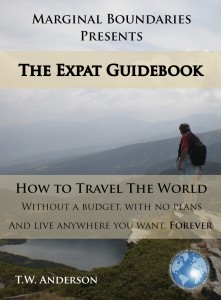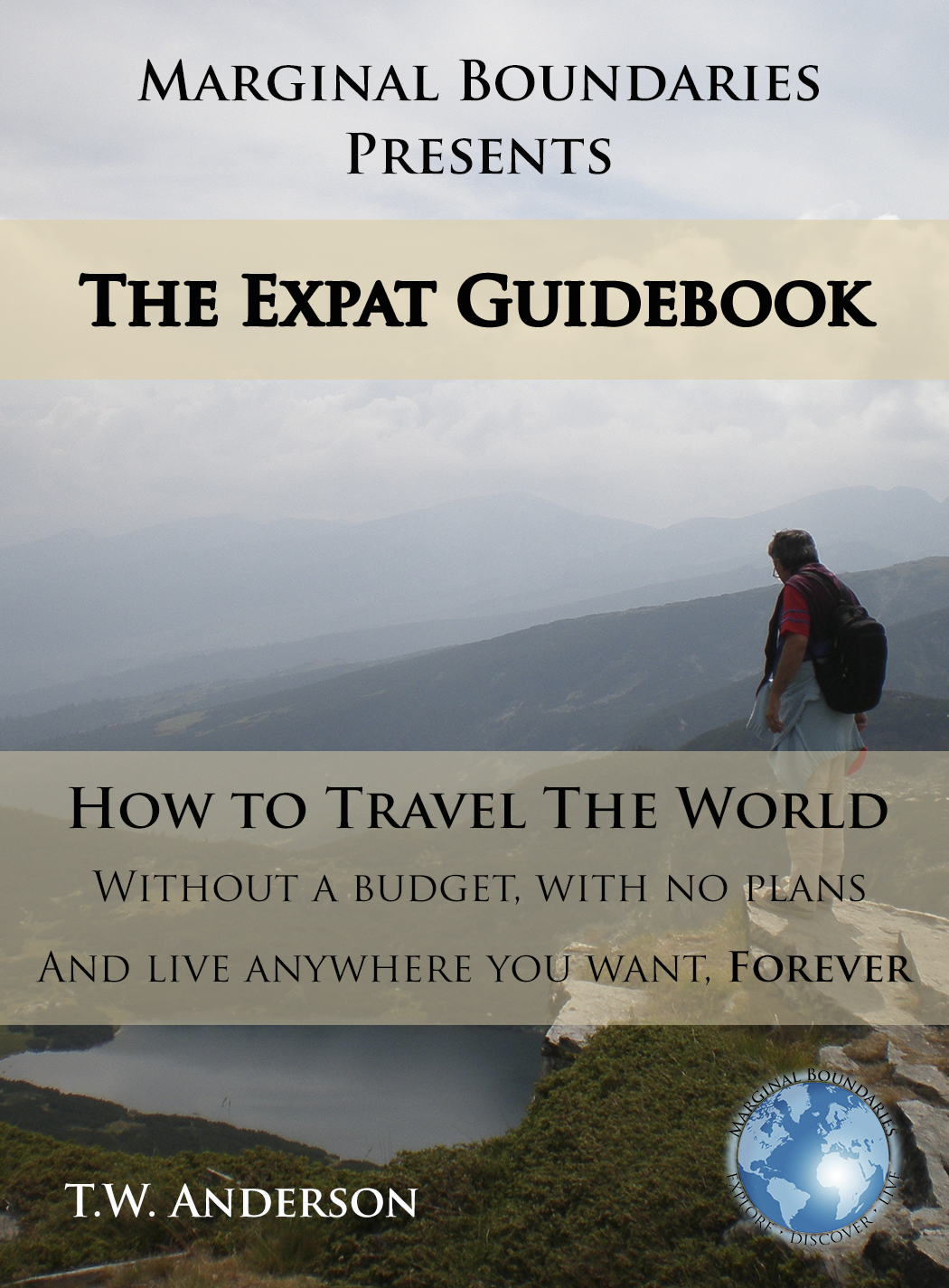
If you want to get the most bang for your buck while traveling the world as an expat or digital nomad / backpacker, you have to utilize negotiation to your advantage. Only then will you avoid paying the foreigner tax that is always tacked on to everything from services to goods to produce and beyond. But there is an art to negotiating with people on their home turf, a talent which requires a certain amount of finesse, charisma, language skills and knowledge of the local culture and how it operates.
Before we go any further, let me just say one thing: everything is open to negotiation. Everyone has a price. If you fail to realize this universal concept you will forever be paying double or beyond what the actual rates are for things. Everything that is sold by a merchant or a store has been marked up so that the merchant can make a profit above and beyond what they paid for the merchandise in the first place, and it’s your job as a traveler to navigate the fine line between acknowledging that the merchant does indeed need to make a profit, and keeping yourself from overpaying. There’s nothing wrong with paying a merchant for their time, but not when they are trying to rip you off.
Negotiation is an art form. It is a skill. And just like any other skill it must be practiced, honed, refined. But even the most seasoned veteran will not win every single barter exchange, especially in the early days when they are first getting started and learning the ropes, but once you have a few successful transactions under your belt you’ll have the confidence and know-how to walk into your next negotiation with the proper skills and knowledge to make your way through the transaction without losing your shorts.
Negotiation is not bulldozing someone by asking them to give you the item or service for free. I can’t tell you how many times I’ve been walking through a market around the world only to hear some clueless tourist in English telling a local merchant “I’ll give you a dollar for this” when the actual rate for that product or service was ten times that amount. Another example I heard one time here in Cancun was a taxi driver who offered to drive a family to the Hotel Zone for eight dollars (the going rate is six from Centro) and the father of the group fired back with “I’ll give you two dollars”.
It is an insult to the merchant when you try to cut their profits by 90% because you think that just because you come from a country where your currency is worth more that the natives will jump at your offering of pennies. It’s like throwing copper coins at the beggars and expecting them to hail you as the Messiah for your so-called generosity. It also shows your complete lack of respect for the local merchants and the local culture when you don’t even take the time to learn the going rates for your given city or part of the world.
Your first task, no matter what part of the world you are traveling to, is to find out what the local rates are. As a general rule, most countries hover the line between 15% and 30%. This is the acceptable standard rate you can use for negotiation. It means that most of the services or merchandise you will be purchasing will have been marked up 15 to 30 percent. It’s a simple matter of finding out and it doesn’t require any special skills. If you lack the local language and cannot ask someone on the street, just ask the hotel or hostel staff wherever you are staying when you first arrive. Locals always know the going rate for discounts in their home city, and it’s your first responsibility to find this out so you can avoid getting ripped off.
Once you know the acceptable negotiation rates for your city you can use them to your advantage for street vendors, at the local markets and beyond. For example, if you see someone selling scarves on the street and you like what you see, you’ll know from your previous conversation that the item has been marked up 15 to 30 percent or higher, based upon which country you are in. After you shop around at a few other vendors in the same area, you’ll have a better idea of who is offering the best rate, and then you can begin your negotiation armed with the knowledge you need.
Find out the local rates for transportation. Then find out what is an acceptable negotiating rate. For example, here in Cancun, Mexico the going rate for a local taxi is 20 to 25 pesos; collectivos are 6 pesos. Any taxis to the Hotel Zone will be a minimum of 60 to 80 pesos, and the buses to the Hotel Zone are 8.5 pesos. But without fail the taxi drivers will always tell people they suspect are tourists double those rates. 40-50 pesos for a taxi, the collectivos will tell you 10 to 12 pesos, and the buses to the Hotel Zone always tell the tourists “one dollar” for tickets, which is 12 to 15 pesos. Taxis to the Hotel Zone will usually ask 120+ pesos.
While you can’t negotiate for a bus, it’s important to know the rates so you don’t get scammed. You can, however, negotiate for taxi services, and knowing the rate in advance allows you to ask a driver for his fee, hear their price, and then determine if you want to counter or walk away. For example, if a driver tells you he wants 100 pesos from Centro to the Hotel Zone, you could counter with 50 pesos (knowing that the local rate is 60 to 80 pesos from your earlier conversation/fact finding mission) and see if he bats the ball back into your ballpark range. You wouldn’t, however, counter with an insulting rate such as 20 pesos, because you’ve done your research in advance and know the acceptable negotiation range.
Unless you know the current rates and have a frame of reference to know where to negotiate from, you will find yourself in the position of the aforementioned tourist who offered his taxi driver an insulting counter-offer when the guy was actually giving him a fair, reasonable rate on a ride from Centro to the Hotel Zone. Do your due diligence when it comes to the lay of the land. The Internet allows you to be more than just another ignorant tourist, as does a little good old fashioned asking your fellow man/woman who actually live in your host country.
Next, find out what is the going rates for accommodations are. This applies to expats more than backpackers, because those of you who follow the immersion travel route like myself are always looking for local digs to use as a base of operations for the next 3 or 6 months or beyond. I find the best source of information on this is taxi drivers, maids, serving staff and people working the low end of the totem pole in any given city. They are usually making around the minimum wage for the city and will thus know the cheapest prices for accommodations. You can use this knowledge to your advantage when you find an apartment that you actually like, because you’ll know what the going rates for basic standards are and from there you can negotiate up accordingly.
You can also use the local classifieds if you speak the local language. Never, in any circumstances, rely on Craigslist, Google or any publication or service which is offering you rates and descriptions in the English language, because anything written in English when the local language is something else is a targeted ad specifically designed to market to the tourist crowds, and thus the rates will be jacked up beyond what the local prices actually cost. Be especially wary of places who want their money in dollars or euros or pounds when the local currency is something else; you can pretty much be guaranteed that they are scamming you with prices that are double or triple or beyond the actual, going rates.
For example, in Sofia, Bulgaria the going rate for a fully furnished, fully equipped and kitted out two-bedroom apartment should never cost you more than €400 to €500 per month on the high end. A fully furnished and all-utilities included single bedroom apartment or a studio should be around €250 to €300 per month high end. But as a foreigner you will always be quoted nearly double that rate, especially if you are from the United States or the United Kingdom, where they automatically assume you are loaded with cash. The same thing applies here in Cancun; local rates range from 4,000 to 6,000 pesos for a decent two-bedroom place, but if you look to any English-speaking advertisement they will have their rates in English and they will always be double the actual, local rates for accommodations, and they will usually be asking for the rent in dollars.
These are just a few of the tips you can utilize to ensure you get the best prices when you are visiting another country as a digital nomad or planning to live there as an expat. Stay tuned to the next installment, when we’ll be talking about the actual art of negotiation and how to combine charisma with conversational skills and your newfound local knowledge to get the best rates on everything you need to settle in as an expat living like a local. You can also read the first installment here.
Don’t forget to sign up for our free newsletter for several-times-a-week, your-eyes-only travel and entrepreneur tips, plus receive a complimentary copy of our 85-page starter book on location independence and living abroad, 30 Ways in 30 Days.








@Will:
I don’t mention it in these articles, but it is mentioned in The Expat Guidebook in the section on corruption/negotiation; taxi drivers are notorious around the world, INCLUDING in the United States, for jacking up their rates far beyond local prices for people they suspect are foreign or newbies. A lot of people like to think the U.S. is above price hiking, but that is absolutely NOT the case So yes….good on you for mentioning that, so people understand that price hikes are common ALL OVER THE WORLD, not just in “those horribly corrupt countries outside the U.S.”.
So yes….good on you for mentioning that, so people understand that price hikes are common ALL OVER THE WORLD, not just in “those horribly corrupt countries outside the U.S.”.
Indeed @ the prices in the Philippines. I know here in Cancun, most foreigners literally get charged 30% to 50% beyond the actual, local rates for things. And it’s totally cutthroat. If you don’t know the actual rates, you get ripped off bad
Tim,
I went to the Phillipines a couple years ago. I went with some people who did not know anything about negotiating. So I helped these girls out with negotiations and the price the girls paid for purses/watches/etc. ended up being 1/3 of the vendors’ initial price! Even at the purchase price I’m sure there was a foreigner tax tacked on but it was a price the girls were comfortable paying. I couldn’t believe how high the markup was though.
Don’t forget that even in the U.S. you can get ripped off by taxi drivers. I was catching a ride in NY and had $20 cash. The taxi driver sensed I was visiting and asked if I wanted a ride (back to friend’s apartment) for $20 plus he would be kind enough to turn off the meter. Little did he know I already knew the ride should cost about $10.
I think the lessons learned from this article and my own personal travel experiences is do your homework.
Will